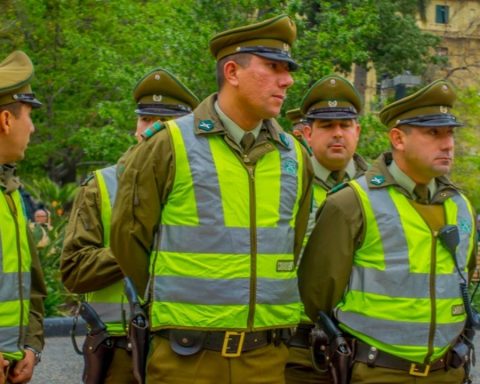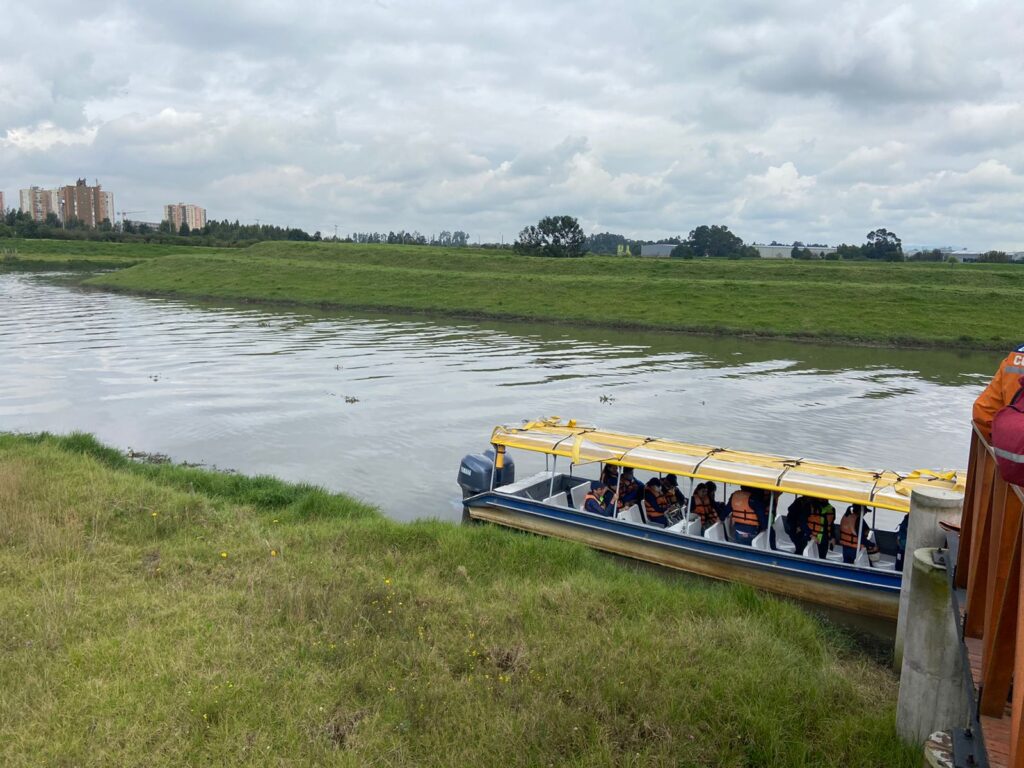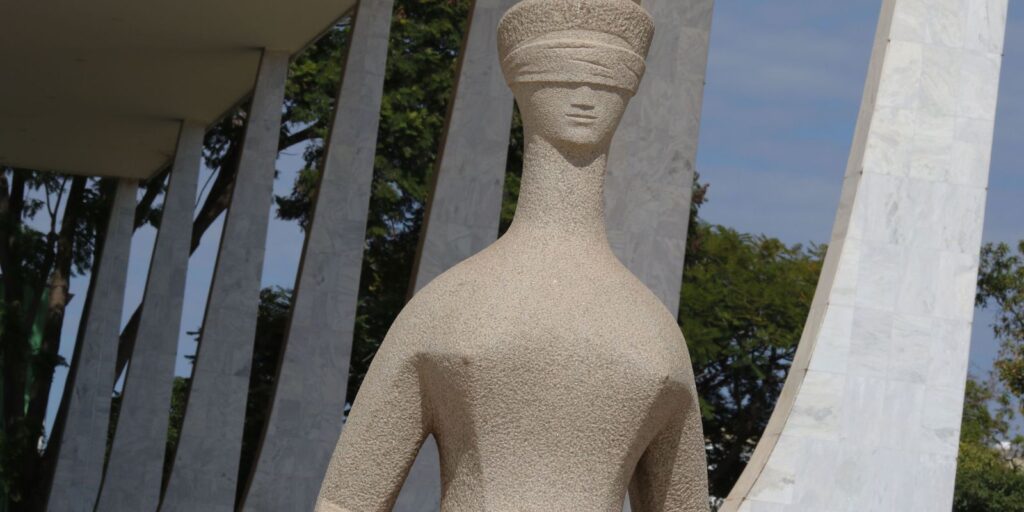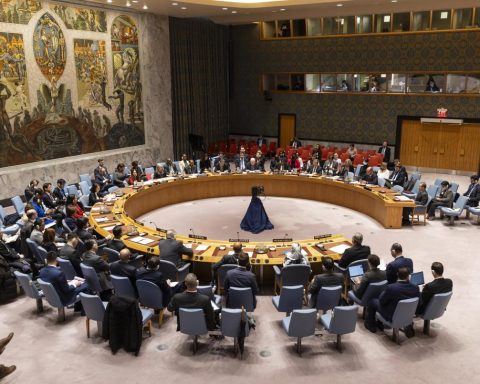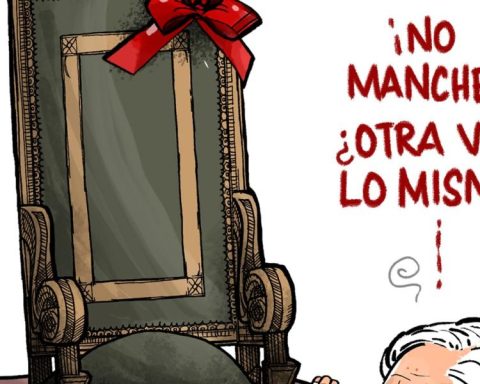This Thursday and unexpectedly, the first exit of a member of the cabinet of President Gabriel Boric took place. This is the health expert and PPD militant, Jeanette Vega, who resigned from her position as Minister of Social Development and Family, after learning of a publication about efforts that one of her advisers would have carried out last May to hold a dialogue with the leader of the Arauco-Malleco Coordinator (CAM), Héctor Llaitul, formalized this Thursday for crimes sanctioned by the State Security Law.
However, the prosecutor of La Araucanía, Roberto Garrido, revealed this Thursday that the communication that triggered the resignation of the head of Social Development was not used as evidence in the Llaitul formalization hearing, as it had no relevance in the investigation. As revealed by the media ex antea PDI report stated that on May 11 an adviser to the now former Secretary of State called the radical Mapuche leader’s cell phone to request a conversation, after an interview in which the community member made a summons to the uprising became known. armed against the government.
Sources close to the ruling party point out that in I Approve Dignity there are no critical voices against Llaitul’s arrest, considering that the CAM spokesperson himself had deployed a discourse contrary to left-wing parties, such as the PC, even comparing him to forestry companies. On this occasion, both coalitions were aligned and -according to details from La Moneda- the chief of staff of the Ministry of the Interior and close collaborator of former President Michelle Bachelet, Ana Lya Uriarte, would have played a determining role in the decision to ask her to resign. Vega, considering that it was a quick decision to avoid further controversy, with the exit plebiscite very close to happening. She had to prevent the issue from “transforming into a Caval 2”.
It should be remembered that since last April – at the express request of the Minister of the Interior and Public Security, Izkia Siches – Vega has been working as the inter-ministerial coordinator of the Government in the so-called Southern Macrozone. In this context, and in one of her first trips to Temuco, the now former minister assured that her work in the area sought that “as a State we respond in a better way to all the problems of the region, not only to the original peoples.” . In addition, she emphasized that the reason for her presence in the Araucanía Region was due to her intention to “constitute a Government.” This coordination role, which was initially intended for Siches, due to the political problems in the Interior, ended up in the hands of Vega, who sought to lead the long-awaited peace process.
Thus, with a logic of summoning all the actors involved to dialogue, following the guidelines established by President Gabriel Boric, this attempt to contact a Llaitul took place who, at that time, was not prosecuted or had an arrest warrant against him. . Although it is not public knowledge, there was some attempt by previous governments to establish conversation channels with the CAM leader. The leak of this dialogue in which Jeanette Vega’s interest in reaching that instance was evident, was finally the fact that determined her resignation from her cabinet, 10 days before the plebiscite for a new Constitution.
From the ruling party, beyond supporting the measure of the President of the Republic and celebrating the opportunity of it, they emphasize that Llaitul is not a particularly difficult person to locate. In fact, a few weeks ago he was in Peñalolén presenting a book, he has attended the press to celebrate ancestral ceremonies in the Temuco prison, where several Mapuche are serving sentences for various crimes, and he has maintained repeated contact with journalists. Why then did this communication take on such relevance that it led to his departure from his cabinet, since within his responsibilities was, precisely, that of making contact with actors in the Mapuche conflict? The answer, they maintain, can only be understood politically.
In some way, with his departure, the sources point out, it is sought to give, on the one hand, an internal signal to end the lack of coordination in the matter. The fact that the Interior had not been aware of these efforts by Vega set off the alarm that a lack of coordination and carelessness like that could have jeopardized the Government’s drive to take over the security agenda, something that had begun to have good results. income and where Llaitul’s own arrest was heading in that direction. And, on the other hand – they point out – the measure served to nip in the bud the right-wing attempt to turn this fact into a snowball to influence the plebiscite. In this sense, that the political costs were paid by the minister was a necessary evil.
But a source close to the now former head of Social Development considers that her departure began to take shape on the night of Sunday, May 15 – the same day the conversation with Llaitul took place – when, on the “Zero Tolerance” program, she declared that in Chile there were political prisoners, raising a strong controversy, from which he had to retract hours later. “There are political prisoners, without a doubt, and I can give examples: the boys who are currently in preventive detention since the outbreak, who have even been in custody for two years, if they are not political prisoners, what are they? They have been prosecuted,” Vega said. Later, via Twitter, he clarified that “there are people imprisoned for crimes committed in a political context, but that is not the same as there are people imprisoned for their ideas. In this sense, it is not possible today to speak of political prisoners. I should have differentiated and avoided misunderstandings”.
Those close to Jeanette Vega believe that this was the first of some errors of “political ingenuity and bad advice”, as when days later, in an interview with ya magazine, was opposed to the installation of a State of Exception in the Mapuche conflict zone, pointing out that “it is not a solution for Wallmapu, a place where there is already a culture of violence and death.” These are statements issued days before the Government announced a limited State of Exception, which has continued to be implemented. A sign of inconsistency that exposes the lack of real interministerial coordination for the peace process in the conflict zone, where Vega could be assuming political responsibility. With all this, with this erratic scenario, according to a researcher on this matter, “it is very unlikely that any international organization, such as the United Nations Organization (UN), would dare to intercede.”
Who is Jeanette Vega?
Jeanette Vega Morales is a doctor from the University of Chile and a doctor in Public Health. She joined the PPD in the military in 1998, resigning in 2018, and re-signing at the beginning of 2022. She is close to former senator Guido Girardi and, in the recent presidential campaign, worked on the campaign of Paula Narváez (PS). Her landing in front-line political positions began in the Government of Ricardo Lagos, when she was part of the Executive Secretariat of the Health Reform, being one of the mainstays in the elaboration of the controversial Plan Auge. She, with her Lagos, she was also director of the Institute of Public Health (ISP), resigning in 2002, to work at the World Health Organization (WHO), where she worked until 2007.
Her departure from the ISP, in October 2002, caused controversy, after she was questioned, particularly by officials of that entity, for the alleged contracts she had made with people close to her, the payment of fees to senior officials and the complaint check forgery, all of which cost the department more than 10 million pesos. In the second government of Michelle Bachelet, she was Undersecretary of Public Health, where she had to face the H1N1 virus pandemic, which left 155 dead until 2010. She also served as director of Fonasa between 2014 and 2018. Close to Bacheletism, they assure that because of She was shortly Minister of Health, but the position was finally in the hands of Helia Molina.
At the beginning of 2022, when President Gabriel Boric was finishing up his cabinet, Vega’s name – internationally recognized for her technical knowledge in Public Health – reappeared among the nominees to lead the Ministry of Health. Those close to the now former minister believe that this would probably have been the best place for her to demonstrate her capacity and leadership, regretting that she finally assumed a portfolio and a role with greater political implications – such as interministerial coordination in the so-called Southern Macrozone. –. Finally, her experience as head of Social Development and Family lasted a little over five months.
In this regard, from her party, the president of the PPD, Natalia Piergentili, said that “we value Jeanette Vega’s decision to assume political responsibility for the events that the country learned. We reveal that her only intention was to fulfill the mandate of the Executive, in Regarding dialogue with all the actors, at a time when the Government’s approach was that ideas could not be prosecuted. We understand that scenarios change, in particular the situation of Mr. Llaitul, who is currently being prosecuted. The important thing is to focus on what the President has proposed to us, in that we should focus on dialogue with those who want to work for peace and build solutions”.

